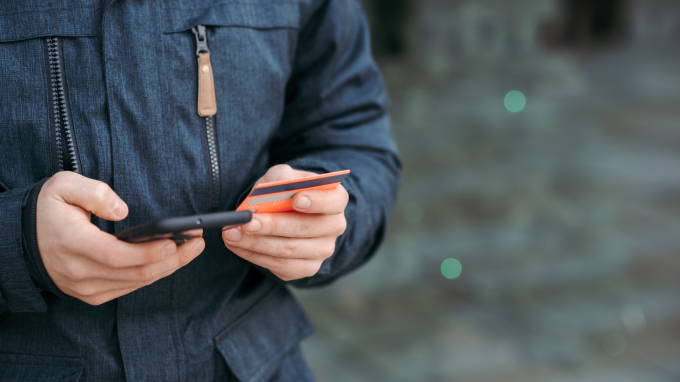Much like the dinosaurs and the ice age, the evolution of payments has a long and storied history. In this piece, we’ll explore the history of contactless payments and other ancient monetary systems right up to the present day. Need a pub quiz question or two? You’ve come to the right place.
The evolution of early payment systems
Some historians suggest that money as we know it was predated by bartering systems, where goods were exchanged without using coins; for example, a hunter might offer their flint tools to a farmer in exchange for some animal skins.
The first use of coins is often attributed to the Lydians (modern day Syria) in the 6th century. In Britain, the Royal Mint was established in 886 and has been the sole producer of UK government-issued coins ever since. Paper money originated in China in the 7th century.
Cashiers would record transactions by hand with a pen and bookkeeping pad – a far cry from the card machines and POS systems we know today.
From ancient monetary systems to the evolution of the cash register
It wasn’t until the Renaissance period in Europe that some of the first banks emerged; in Siena, Italy, the Banca Monte dei Paschi di Siena was established in 1472 and is the oldest surviving bank in the world.
The Bank of England was created in 1694, and initially issued handwritten notes on bank paper that had to be signed by cashiers, which was the case until 1853 when fully printed notes were introduced.
Mechanical cash registers were invented by James Ritty in 1879, with keys, simple calculating abilities and drawers to stop employee theft. Receipt rolls were added in 1884 to further help prevent fraud.
When were credit cards invented?
Some of the earliest credit cards can be traced back to the 1920s in the USA, where some department stores offered paper ‘courtesy cards’ to their most reliable customers. Then in 1950, the first modern credit card was issued by the Diners’ Club – a charge card for travel and entertainment purposes. In 1958, the first mass ‘universal’ consumer credit card was introduced by Bank of America; this time, purchases weren’t restricted to particular leisure activities.
In the 20th century, one memorable milestone was the introduction of the humble ATM machine. Enfield in North London had the honour of welcoming the world’s first ATM, which was installed at a Barclays bank branch in 1967.
History of contactless payments
A breakthrough in Near Field Communication (NFC) technology, where data could be transmitted through short radio waves, led to the arrival of contactless payments. The first UK contactless payment card was introduced by Barclays in 2007, and by 2011, the first contactless mobile payments were available. Prior to that, Chip and PIN technology for card machines had been available in the UK since 2004, so customers had to input their four-digit PIN in order to make a payment on a card machine.
By 2014, Apple Pay and Google Pay were launched, and today, there are no shortage of devices where customers can make contactless payments – from smartwatches to wristbands. And most recently in October 2021, the contactless payment limit increased from £45 to £100 in the UK.
The history of the card machine
While contactless payments are a more recent trend, card machines themselves have of course been around for longer. Visa launched the first POS terminal – an electronic device for processing card payments – in 1979, and the first generation of electronic card machines were fixed, countertop terminals. As technology has evolved, a new wave of smaller, portable mobile card machines have enabled businesses to take wireless payments while on the move. Today, merchants can take payments not just on card machines, but online and over the phone with the help of virtual terminals.
The future of payments
As technology marches onwards, how will we take payments in the future? We can only speculate, but perhaps we will see the growing adoption of biometric payments – from fingerprint to facial recognition transactions. And will cash itself be used less and less? Debit cards overtook cash payments as the most frequently used payment method in 2017, but as the Bank of England observes, the number of bank notes in circulation has actually increased over the years. Looking further ahead, PricewaterhouseCoopers (PwC)’s Payments 2025 & beyond report outlines the possibility of a shift from traditional bank cards and accounts to digital wallet platforms, not to mention the prospect of central bank digital currencies.
Look who’s 'Tyl Talking'
We may not have a crystal ball, but over at Tyl Talks we have countless guides to help you manage your business. Try some of these for size.
Disclaimer
This has been prepared by Tyl by NatWest for informational purposes only and should not be treated as advice or a recommendation. There may be other considerations relevant to you and your business so you should undertake your own independent research.
Tyl by NatWest makes no representation, warranty, undertaking or assurance (express or implied) with respect to the adequacy, accuracy, completeness, or reasonableness of the information provided.
Tyl by NatWest accepts no liability for any direct, indirect, or consequential losses (in contract, tort or otherwise) arising from the use of the information contained herein. However, this shall not restrict, exclude, or limit any duty or liability to any person under any applicable laws or regulations of any jurisdiction which may not be lawfully disclaimed.
